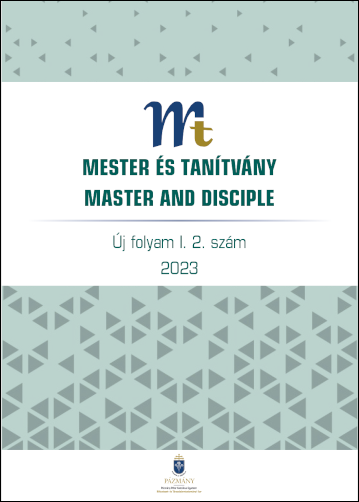Parental activity as a differentiating factor in the period of digital education (covid19) - The experiences of school principals
Published 31-12-2023
Keywords
- parental involvement,
- social status,
- digital learning
Copyright (c) 2023 Török Balázs

This work is licensed under a Creative Commons Attribution 4.0 International License.
Abstract
In our study, we show that parental activism and quasi-teacher engagement, combined with the expansion of the school's communication capacity, has resulted in a new form of learning environment in the period of digital education (COVID19). Despite a decline in the reliability of student performance assessments, the learning process has become essentially sustainable outside the classroom. Parental activity, however, proved to be a differentiating factor: students who were used to being motivated by organisational pressure in classroom situations were more likely to avoid learning, when parents did not substitute for school pressure. Parental activity was also a differentiating factor for primary pupils, where home learning replaced rather than complemented school learning.
References
- Andrews, J. J.; Saklofske, D. H.; Janzen, H. L. (Eds.) (2001): Handbook of Psychoeducational Assessment: Educational Psychology. San Diego: Academic Press.
- Borgonovi, F.; Montt, G. (2012): Parental Involvement in Selected PISA Countries and Economies: OECD Publishing (OECD Education Working Papers, 73).
- Bradley, S.; Green, C. (Eds.) (2020): Economics of education. A comprehensive overview. Second edition. Amsterdam: Academic Press.
- Chua, A. (2011): Battle hymn of the tiger mother. London, New York: Bloomsbury.
- Desforges, C.; Abouchaar, A. (2003): The impact of parental involvement, parental support and family education on pupil achievement and adjustment. A review of literature / Charles Desforges with Alberto Abouchaar. Nottingham: Department for Education and Skills (Research brief, no. 433).
- Dworkin, A. G.; Ballantine, J.; Antikainen, A.; Barbosa, L. M.; Konstantinovskiy, D.; Saha, L. J. et al. (2013): The sociology of education. In Sociopedia, checked on 2017. 03. 04.
- Goffman, E. (1967): Interaction ritual. Essays in face-to-face behavior. Chicago: Aldine Pub. Co.
- Hanushek, E. A.; Woessmann, L. (2020): THE ECONOMIC IMPACTS OF LEARNING LOSSES. JT03465025; EDU/WKP(2020)13. In OECD Education Working Paper (225), checked on 2021. 01. 17.
- LaRocque, M.; Kleiman, I.; Darling, S. M. (2011): Parental Involvement: The Missing Link in School Achievement. In Preventing School Failure: Alternative Education for Children and Youth 55 (3), pp. 115–122. https://doi.org/10.1080/10459880903472876
- Luhmann, N. (2006): Bevezetés a rendszerelméletbe. Budapest: Gondolat.
- Luhmann, N. (2009): Szociális rendszerek: egy általános elmélet alapvonalai. Társadalomelmélet - kommunikációtudomány. Budapest: Gondolat Kiadó: AKTI.
- Luhmann, N. (2012): Strukturauflösung durch Interaktion: ein analytischer Bezugsrahmen / Structural breakup by interaction. An analytical frame of reference. In Soziale Systeme: Zeitschrift für soziologische Theorie (17, H. 1), pp. 3–30.
- Mead, G. H.; MORRIS, C. W. (1934): Mind, self & society from the standpoint of a social behaviorist. Chicago, Ill.: University of Chicago Press.
- Roth, S.; Schütz, A. (2015): Ten Systems: Toward a Canon of Function Systems. In Cybernetics and Human Knowing. 22 (4), checked on 2019. 12. 20.
- Simmel, G.; Blasi, A. J.; Jacobs, A. K.; Kanjirathinkal, M. J. (2009): Sociology. Inquiries into the construction of social forms. Leiden, Boston: Brill.
- Vanderstraeten, R. (2010): The School Class as an Interaction Order. In British Journal of Sociology of Education 22 (2), pp. 267–277. https://doi.org/10.1080/01425690120054876
- Vanderstraeten, R.; Biesta, G. (2006): How is education possible? Pragmatism, communication and the social organisation of education. In British Journal of Educational Studies 54 (2), pp. 160–174. https://doi.org/10.1111/j.1467-8527.2006.00338.x

